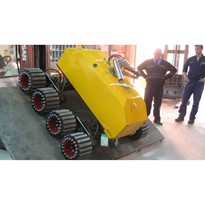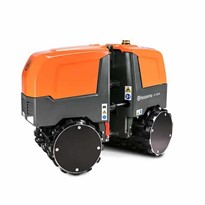When operating an engine driven welder or using power from a welder/generator out in the field, operators are often faced with a dilemma: Do you leave the machine running in between the tasks and risk wasting fuel or do you turn it on and off each time at the cost of losing efficiency?
The remote start/stop feature in the new Miller Bobcat 260 welder/generator resolves that issue.
The model, which was recently made available in Australia through Welding Industries of Australia (WIA), can be turned on or off with a remote control, allowing the operators to work noise-free when they no longer need the welder or the power source. It also offers considerable fuel savings, so the machine can run longer with each tank refill.
Fuhai Liu, Product and Sales Manager – End Markets at WIA says the remote control option in the new Bobcat 260 is a unique feature for a welder/generator of its calibre.
“For a low-budget, commercial model, the Miller Bobcat 260 was already jam-packed with great features. It’s one of the most popular models in this class of welders across the WIA branch network. The remote control feature adds even more efficiency and convenience to an already very successful product,” says Fuhai.
One of the key markets where the Miller Bobcat 260 is extensively used is in the farming and agricultural sector, according to Fuhai.
“When working on a farm, access to a power source is not always readily available. An engine-drive welder/generator like the Bobcat 260 is a handy machine for conducting simple welding and repair jobs or to use as a stand-alone generator for different applications.
“Fuel savings are particularly important when you are working on a farm. Apart from the obvious benefit of saving on fuel costs, going back to the storage to get the fuel to refill the welder’s tank can be a time-consuming task on a large farm. By easily turning off the machine when it’s not needed, you can extend the refill interval. A large 45-litre capacity fuel tank enables long runtimes with this machine.”
The remote start/stop feature is available on both the diesel and petrol models of the Miller Bobcat-260.
Matthew Hefferan, Business Development Specialist at WIA, says there’s no right or wrong when it comes to the choice between buying a petrol or a diesel model.
“It all depends on your preferences. The diesel model is slightly more expensive than the petrol model, which explains why most people prefer to buy the petrol-fueled machine. That said, there could be long-term cost benefits if you invest on the diesel-run model.”
Overheating is not a concern with the Miller Bobcat 260 as the model features the signature reversed generator airflow feature of the Miller range, according to Matthew.
“Quite often, engine drive welders are fitted at the back of a utility vehicle or on top of a trailer, surrounded by toolboxes or other barriers that can limit the airflow. The exclusive engine and generator packaging design in the Miller machine ensures that the engine is rotated towards the front to create efficient airflow.”
The Miller Bobcat 260 is capable of being adopted for multiple welding processes, including stick, MIG, flux-cored, DC and AC TIG, air carbon arc and even air plasma cutting and gouging with optional Cutmatic 45 models.
However, Matthew says the machine’s most common uses, particularly in the agricultural sector, are for stick welding and power supply.
“When using the Bobcat 260 as a stand-alone power generator, users can rest assured that the reading on the machine is a true reading and not inflated. The Accu-Rated™ feature in the Bobcat 260 ensures that 11,000 watts of usable peak power is delivered for a minimum of 30 seconds to facilitate plasma cutting.”
The Miller Bobcat 260 follows the footsteps of its predecessor model, the long-running Miller Bobcat 250. In addition to the enhanced user-friendliness of the new model, it also offers an extra 10 amps of power.
“The Miller Bobcat 260 is very easy to set-up and use. There are no digital interfaces, as most customers in the agricultural sector prefer the manual front panel. To use the machine for stick welding, all you need to do is to choose the stick welding option on the front panel, choose the type of electrode you want to use, set the amperage, and you are ready to weld.”


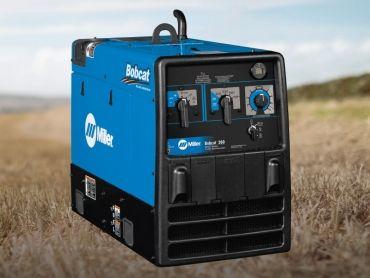

-160x160-state_article-rel-cat.png)
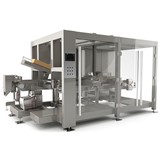


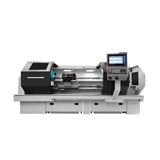
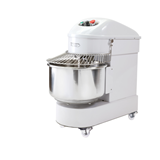

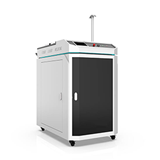
-160x160-state_article-rel-cat.png)


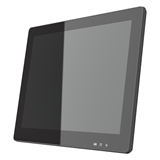




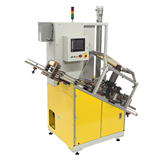






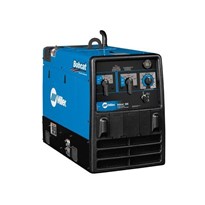
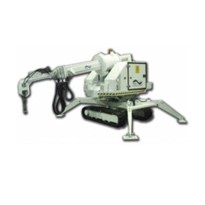
-205x205.jpg)

-205x205.jpg)
-205x205.jpg)


-205x205.jpg)
